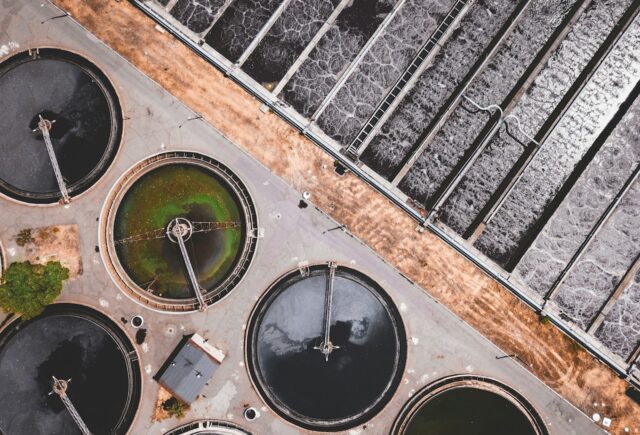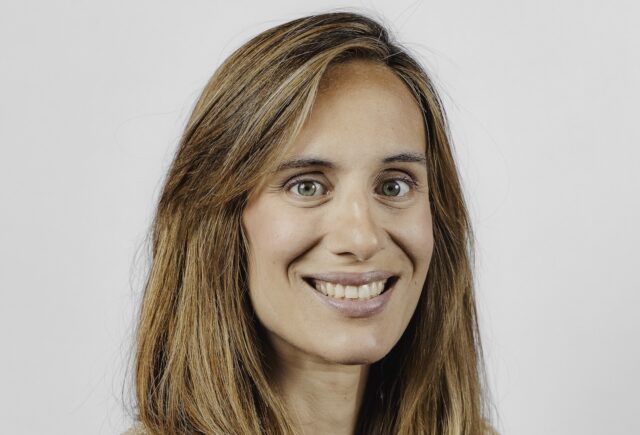This summer Impact Investor talks to investors and entrepreneurs about how the pandemic has shifted priorities. This week: Ayodeji Balogun, CEO of Nigeria-based commodities exchange AFEX.

CV
- Balogun has almost twenty years experience trading across West Africa as well as in building and scaling businesses across Sub-Saharan Africa.
- He serves on several capital market boards and works with several institutions on food security and financing agriculture.
- Balogun has been a pivotal member of several impact-oriented projects and organisations, including the West Africa Chapter Coordinator for the Aspen Network for Developing Entrepreneurs (from 2011 to 2013); he was Technical Advisor to ECOWAS on food security from 2014 to 2015.
The way Ayodeji Balogun sees it, the Covid-19 crisis – despite hitting “like a horror movie” – may not be the emergency we need to worry about most.
“The climate emergency in a way is the real pandemic because it’s something that will seize all of us. It has the capacity to stop production”, says Balogun, whose career has focused on answering the question of how to build a business that provides solutions for customers at the bottom of the pyramid at a scale that can actually make an impact in Africa.
At the outset of the pandemic, wider questions were raised about the role of business. “Even early on in the pandemic, while I saw it creating an immediate need to react, I also saw climate change being in a sense the bigger ‘pandemic’, particularly for farmers. So when everybody was doing scenario analysis, I felt: what if the following year and the year after, there is no rainfall?”
The pandemic reflected a real concern that the farmers he works with would be severely affected.
The other question was whether Africa has sufficient food reserves. “That used to be something very distant, but the pandemic has really brought that thought near”, he says. “Food prices in Africa are now 80% above pre-pandemic levels. This is eroding the capital that would have gone to health care, education and shelter for lower income families.”
Balogun acknowledges that his experience of living in Africa is different to how other parts of the world experienced the pandemic. “We did close down in Nigeria, but it felt like it was more prevalent in the cities. It wasn’t a major fear-factor with our rural population. It did feel to me like nature had a way of protecting its most vulnerable people, and preventing the worst possible outcome that was envisaged.”
Worst-case scenario
Despite that, he recognised that it could still have a major effect on Afex’s rural partners. The commodities exchange leverages technology, innovative finance, and inclusive agriculture to connect small- and medium-sized agriculture businesses and smallholder farmers to commodity and financial markets.
“In the beginning, one of the things we did was to include a health cover as part of the insurance component of the agricultural loans we give to farmers. And the fear for me was that our worst-case scenarios were that farmers could drop dead from the pandemic, almost like the Ebola crisis that really affected some parts of West Africa.”
That was a worst-case scenario. “I thought that at least if the farmer had a chance to save his own life, money for health care should not be a deterrent. So we included a health package”, says Balogun. “But when we visited the farms, the comments from farmers were that coronavirus was a city phenomenon. They did not need it.”
‘What really matters is family’
In practical terms, lockdowns forced changes in the way of doing business – many of which are likely to be permanent, predicts Balogun. From the “death of the tie” to wall-to-wall teleconferencing, personal and professional life has been transformed.
“At the start, I tried to attend every webinar possible, and tried to be at every meeting and every call, I literally would be on calls from 7am to 9pm in a room locked in front of a computer, with the kids demanding attention. At some point, I told myself: this is probably going to be the only non-vacation time you will have in your career where you are home for this long, so you might as well focus on what really matters. And that question really resonated”, says Balogun.
While we obsess over problems, Balogun’s view is that we have to find the part of ourselves that asks what truly matters. “For me, it was my family and I did start to make more time for that.”
Looking forward, he no longer expects to obsess about working from a particular location – a lasting impact of the way the pandemic has transformed working culture. “I love traveling but it got to the point where I dreaded going through airports. But I also miss traveling – the truth is if you are on a Zoom call, you don’t have the same memories and feelings as if you met someone in person. I look forward to more travels post the pandemic.”






